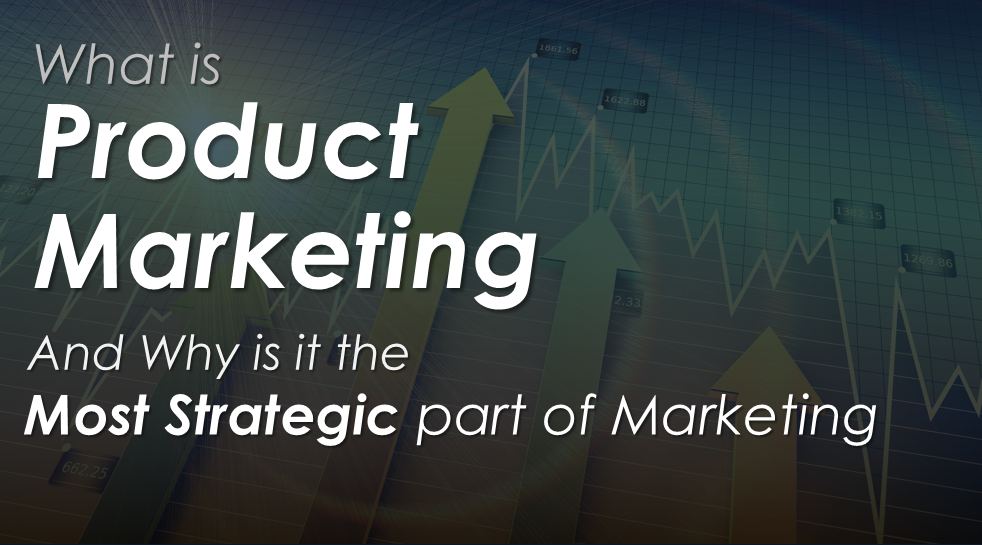This is the first in a series of interviews of marketing leaders and CMOs that I respect and admire.
 About James Latham – he is the former CMO at OpenText and VP of B2B Strategy at McCann Worldgroup. I had the privilege o working for James at OpenText and he is one marketers I admire both personally and professionally. James is also on the advisory board for the CMO Council.
About James Latham – he is the former CMO at OpenText and VP of B2B Strategy at McCann Worldgroup. I had the privilege o working for James at OpenText and he is one marketers I admire both personally and professionally. James is also on the advisory board for the CMO Council.
What company is an example of good marketing today? Who do you admire?
James: I think there are a large number of companies that fit that description that I admire. A lot of my colleagues have told me they admire Apple, and there is much to learn from Apple. However, I think Apple represents only a couple of the strategic marketing components that some others have had to deal with more succinctly. I am a fan of how BMW/Mini created an entire profitable brand from a defunct automobile company. Making the Mini in to a personalized platform for driving, and following that strategy, tying it into a web experience, a dealership experience, and a user/driving experience all integrated together I find fascinating and instructive.
Did you have a mentor or a person you learnt the most from? What was a key lesson?
James: In my career I have had many lessons learned from many CEO’s, Managers, and executives. Perhaps some of the best lessons learned are from Kamran Kheirolomoom. Kamran was CEO of a startup that grew fast, stuttered, then regained its momentum. I recall clearly the lesson of focus. Customers were clamoring for solutions that my team could have built profitably with our software, but orthogonal to the company¹s mission. The discipline to stay true to a vision is essential in any size organization.
What story of a successful marketing strategy could you share?
James: I have a few that are best told over a beer, but one that I really like is the brand work that was done at OpenText from 2010 through 2012. After acquiring so many companies, OpenText had 27 brands in 2009. Taking that disjointed set of targets, solutions, software, and vertical industries, and tying them together into one voice and one vision was a major strategic and execution challenge. The marketing team there took that on and executed perfectly, setting the stage for even further acquisition, faster integration, and ultimately faster growth.
What is your marketing superpower, the most important skill that makes you a great marketer?
James: Without a doubt it is the ability to apply critical strategic frameworks to marketing challenges. Doing so provides key insights in to organization, program direction, investment decisions, and even hiring. Classic strategy thinking is extremely valuable in that it allows for assimilation of quantitative and qualitative data in a method that delivers insights and direction where none was obvious.
What interesting book have you read recently?
James: I liked David & Goliath by Malcolm Gladwell. His books always contain a tidbit or two of fascinating facts, and some stories that one can cite to make a point about marketing challenges and misconceptions.
What new, modern tactic, tool, or aspect of marketing should marketers pay more attention to?
James: I think tools that provide capabilities for dynamic and highly personalized marketing communications and engagement are impotent to consider. Getting a complete view of customer behaviors and the ways they engage with a brand from social media analysis in a tightly segmented, and in aggregate, can yield essential insights for evolving marketing efforts.
What good aspect of basic marketing have marketers neglected in recent years?
James: I don¹t think marketers across the board are neglecting basic marketing. It is easy to see examples of spectacular misses in product, placement, communications, etc., but no one company or industry is faltering in toto.
What skills will marketers will need in the future? How do you stay sharp?
James: Marketing continues to change rapidly. Without constant refresh, new insights, new connections, new ideas, and new research, every marketer, from the new marketing manager through to the CMO risks becoming obsolete. I read voraciously, engage with my fellow CMO¹s in the CMO Council, go to at least three conferences every year like MarketingWorld, participate in local AMA meetings when possible.
In addition, I keep current in marketing research in my specialty area international marketing. Finally, I¹ve been taking courses throughout my career, and do academic research at Boston University, where I recently received my Masters in International Marketing Management.
What was the turning point in your career?
James: I was a program analyst at IBM in a research facility when the company sponsored a program called ‘back to the field’ in order to get technology knowhow closer to the customer. I took that challenge and joined the marketing force there at IBM in New York City, and haven’t looked back.
How do you increase marketing’s relevance and influence in the organization?
James: I gave a talk a couple of years ago at MarketingWorld that is still relevant today: aligning marketing goals with the CEO. There is no faster way to alienate customers, sales, and all your internal constituents than pursuing a strategy that does not align perfectly with the company vision. Yes its important to be a thought leader relative to your industry, market, and discipline, but one must temper all that with alignment.
What blog would you recommend?
James: I am a fan of Jonathan Becher, CMO of SAP. http://jonathanbecher.com/ He does a great join of making his posts valuable and interesting for a wide swath of marketers not just enterprise software marketers.
How would you summarize your digital marketing strategy?
James: Eyes open for opportunities, in short. There will always be something new in digital since it is exploding. We can expect to see lots of innovation ideas, and capabilities that translate into new tactics we can use to engage, understand, and communicate our brand in relevant ways. Keeping your options open and looking to understand what works and how is most important. I always allocate 10% of the budget to testing new ideas and program components in order that my team can learn, and we can see what elements are resonating with the audience.
What experience in your past has best prepared you to be a marketing leader?
James: Interestingly enough, my background in computer science has prepared me for this new world of digital marketing and data analytics. Academically trained in classic computer science paradigms like finite state machine theory and database cluster analysis gives me the foundations to understand quickly the digital marketing and big data opportunities and landscape, and lead my team toward the future. I think this technology background, coupled with my experiences working within and for large organizations in a marketing leadership capacity gives me a world of differentiation.
How marketing leaders can be better mentors and true leaders of their teams?
James: Take the time to give back to the people that gave to you academic, industry, company, and community there are lots of ways to teach and lead. Take on only as many mentorship roles as you can realistically engage with enough time to be impactful. Leadership comes from the foundations and fundamentals. Take care of your own career and keep learning, and you¹ll be in a position to provide value to your team. Integrate, assimilate, analyze, and communicate. Articulate the vision in a strategic context, and allow your team to take on responsibility and risk, and they will be the better for it.
Any final thoughts or anything else you would like to share?
James: To all my fellow marketers stay sharp. We can expect more and more complexity in marketing. more data driven analytics and adaptive capabilities we¹ll need to rapidly understand and deploy. Staying on top of your game is both rewarding and fun.
I want to sincerely thank my friend James for participating in this project as the first marketing leader to be interviewed. You can follow James on his blog The CMO Zone at http://jameslatham.com and via twitter at @jlatham
Stay tuned for more interviews in this series.



